On the afternoon of February 22, Ho Chi Minh City National University held a seminar "University - Locality - Enterprise Linkage: Synergy for Economic and Social Development", with the participation of many leaders of ministries, localities, enterprises and hundreds of lecturers and students.
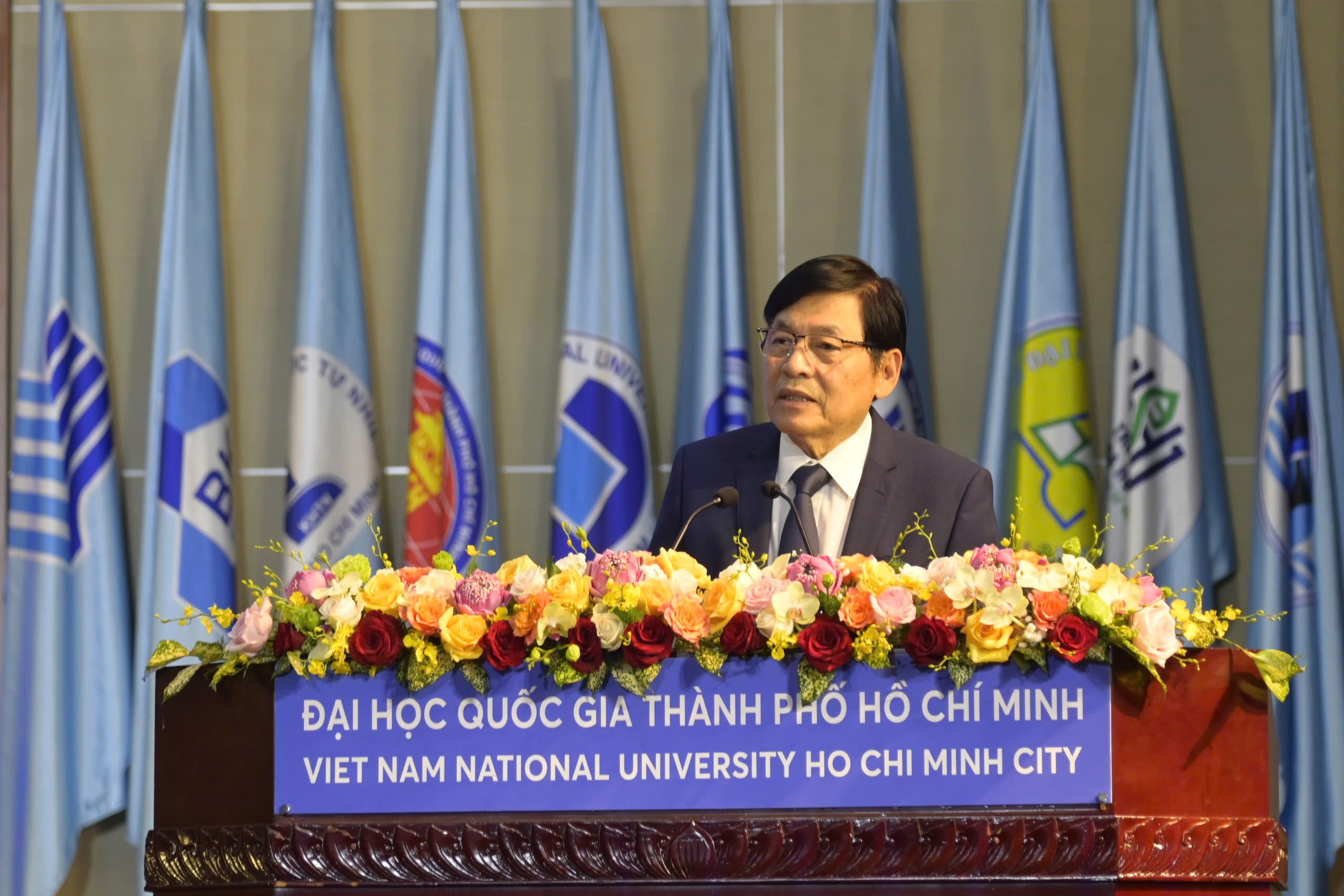
Mr. Pham Phu Ngoc Trai shared his perspective on the connection between businesses and universities on the afternoon of February 22 - Photo: KHAC HIEU
Graduates do not meet business needs
At the seminar, Mr. Pham Phu Ngoc Trai - Chairman of Global Integration Business Consulting Company, member of the Science and Training Council of Ho Chi Minh City National University - commented: "Every year hundreds of thousands of graduates enter the labor market, but most of them still do not immediately meet the requirements of businesses."
Citing data from the General Statistics Office (2023), according to which Vietnam has more than 2 million students studying each year, but only about 60% of graduates have jobs in their major, he said that this number reflects the imbalance between university training programs and the actual needs of the labor market.
As a result, many businesses have difficulty recruiting personnel with suitable skills, especially in the context of the rapidly developing digital economy and international integration.
"The input quality of Vietnamese students is assessed as quite good, but the output still has many limitations, especially in three important aspects," he commented.
The first aspect lies in soft skills. Students have a good grasp of theory but lack practical experience, critical thinking, communication skills, and the ability to work in a team.
The second aspect is adaptability. While the modern working environment requires flexibility and the ability to learn quickly, many students are still passive, depending on book theory.
Finally, the ability to apply practically. According to him, the training program is still heavy on theory and little on practice, leading to students not having enough experience to meet business needs immediately after graduation.
"This difference puts businesses in a difficult position, requiring them to spend significant resources to retrain new employees, increasing costs and prolonging integration time," said Mr. Trai.
"If there is a close connection between businesses and universities, students will have early access to work reality, helping to significantly shorten the retraining time after graduation."
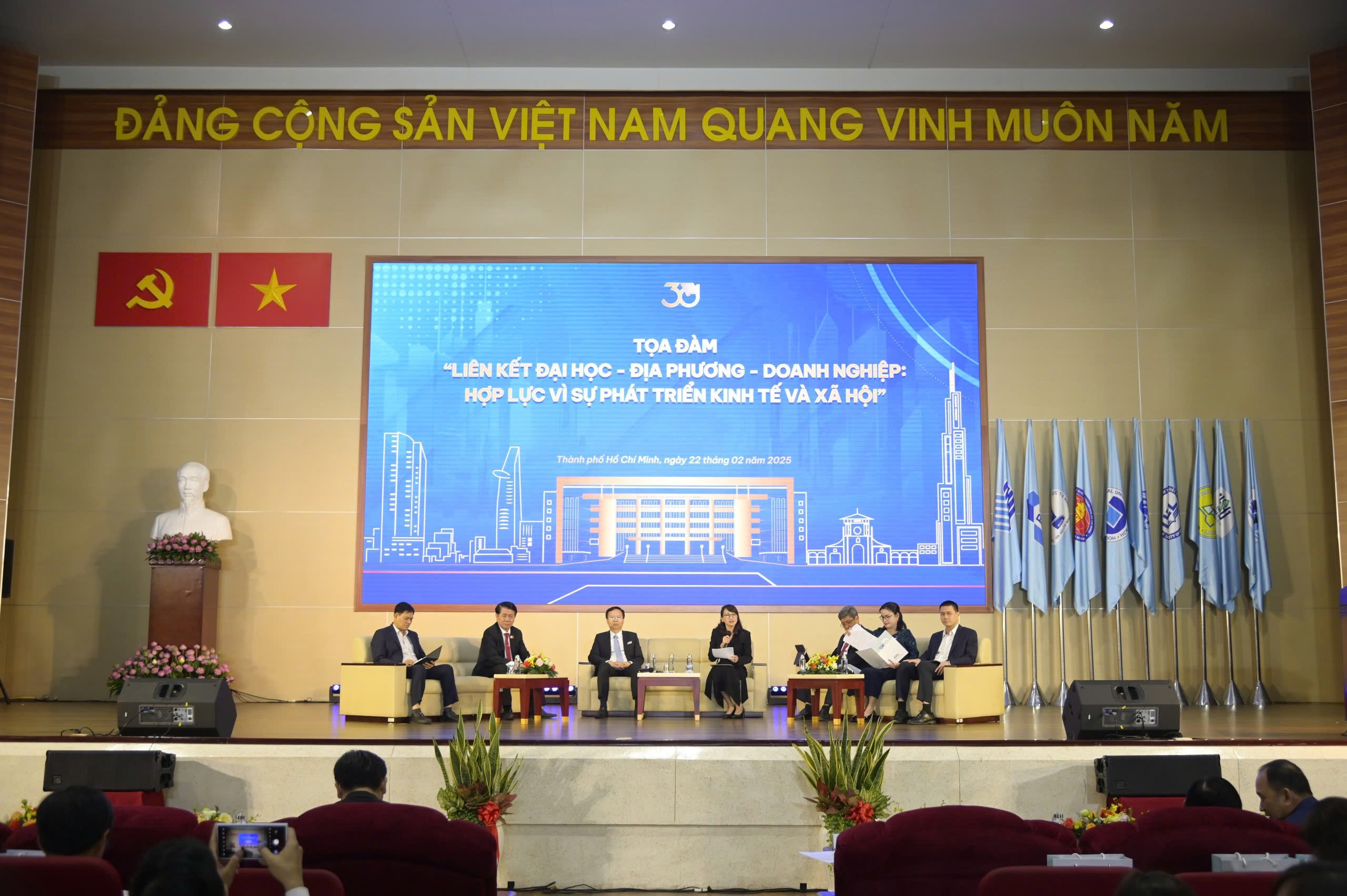
Delegates at the discussion on the afternoon of February 22 - Photo: KHAC HIEU
How do businesses and universities join hands?
Cooperation between businesses and universities is also receiving much attention from Ho Chi Minh City National University to create more development opportunities, especially for students.
Associate Professor Dr. Nguyen Minh Tam, Vice President of Ho Chi Minh City National University, informed that this university has continuously expanded cooperation with 31 localities and more than 200 enterprises and corporations in many fields, from training, scientific research, technology transfer to scholarship support and policy consulting.
Especially in the period of 2021 - 2024, cooperation with localities and enterprises grew strongly with the number of signed documents increasing by 387% (348/90 documents) and coordination activities increasing by 248% (742/261 activities) compared to the period of 2016 - 2020.
However, Mr. Tam also admitted that the current cooperation is still short-term, without a specific and sustainable action plan. The activities have not fully exploited the scientific and technological potential and the team of experts of Ho Chi Minh City National University.
"Therefore, there needs to be innovation in the approach to enhance the effectiveness and longevity of the links between universities, localities and businesses," said Mr. Tam.
Emphasizing the important role of universities in connecting with businesses, Prof. Dr. Mai Thanh Phong - Principal of the University of Technology (Ho Chi Minh City National University) - said that not all businesses are ready to cooperate or have immediate needs.
Some businesses are also quite shy about corporate security issues. Therefore, according to Prof. Dr. Mai Thanh Phong, the initiative must lie with the schools, first of all, in understanding the importance of cooperation.
Schools can build a professional team to promote sustainable relationships between schools and businesses, through many activities such as training cooperation, technology transfer, etc.
Mr. Pham Phu Ngoc Trai introduced a model that many multinational corporations have successfully implemented over the past decades in Vietnam: "management trainee".
In the program, corporations work with universities to select and train potential students, helping them access a professional working environment early.
On the business side, they will proactively build a workforce of successors, instead of having to compete fiercely in the free labor market. Students are motivated to develop their personal and career, helping them to stay with the business for a long time.
"This is a model that Vietnamese businesses need to learn and replicate. However, to do that, there needs to be strategic cooperation between universities and businesses to build training programs that are suitable to the actual needs of the labor market," said Mr. Trai.
Source: https://tuoitre.vn/ket-noi-chat-che-doanh-nghiep-va-dai-hoc-sinh-vien-se-som-tiep-can-thuc-te-cong-viec-20250222170313378.htm



![[Photo] General Secretary To Lam meets and expresses gratitude to Vietnam's Belarusian friends](https://vphoto.vietnam.vn/thumb/1200x675/vietnam/resource/IMAGE/2025/5/11/c515ee2054c54a87aa8a7cb520f2fa6e)

![[Photo] General Secretary To Lam arrives in Minsk, begins state visit to Belarus](https://vphoto.vietnam.vn/thumb/1200x675/vietnam/resource/IMAGE/2025/5/11/76602f587468437f8b5b7104495f444d)







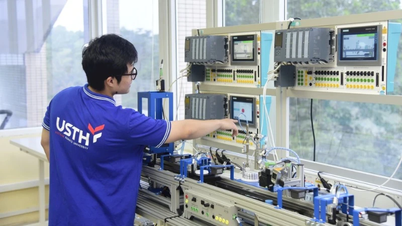

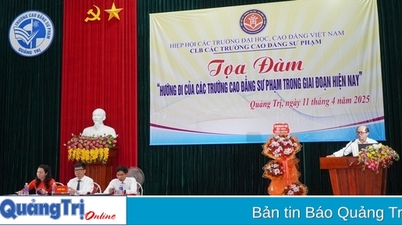

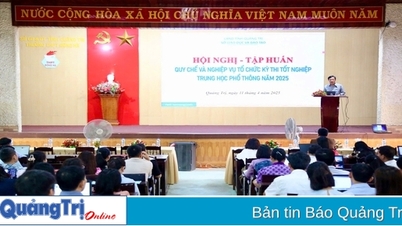


![[Video] Proposal to amend some inadequate contents in the Education Law](https://vphoto.vietnam.vn/thumb/402x226/vietnam/resource/IMAGE/2025/5/12/60daf3b4ba5649a4a09eeed40ede4fd4)
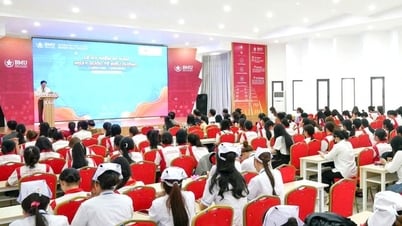













![[Photo] General Secretary To Lam concludes visit to Russia, departs for Belarus](https://vphoto.vietnam.vn/thumb/1200x675/vietnam/resource/IMAGE/2025/5/11/0acf1081a95e4b1d9886c67fdafd95ed)































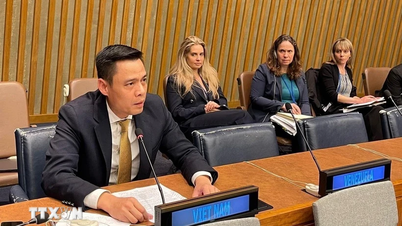































Comment (0)